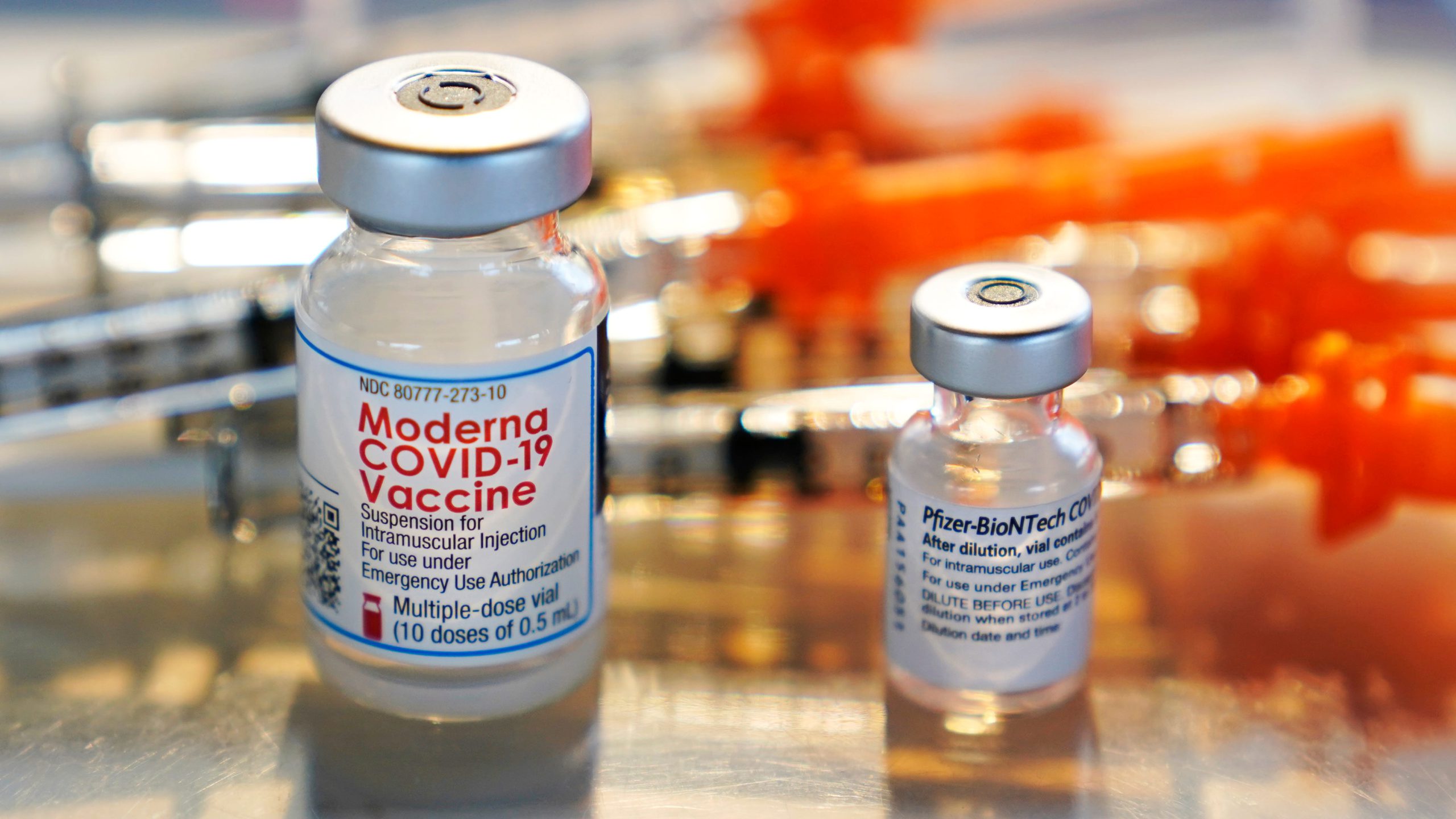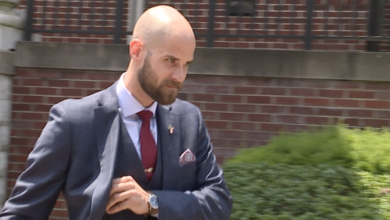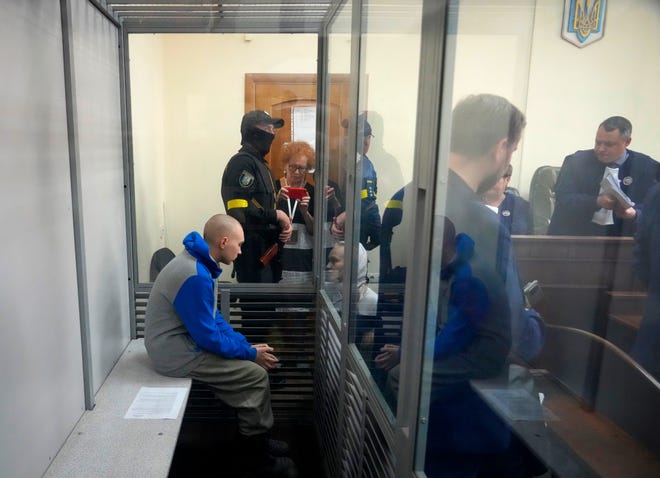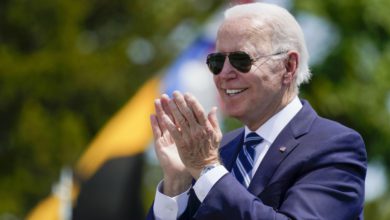

WASHINGTON – The Biden administration on Wednesday unveiled plans to begin offering COVID-19 booster shots on Sept. 20 for American adults who received the Pfizer or Moderna vaccines as cases of the highly contagious delta variant continue to spread across the country.
The U.S. will provide a third shot to Americans who received their second vaccine dose at least eight months ago, pending authorization from the U.S. Food and Drug Administration, top U.S. public health officials announced.
While mRNA vaccines like Pfizer and Moderna continue to be effective in reducing risk of hospitalization and death, federal officials said new data that shows the vaccines' effectiveness decreases over time.
"Based on our latest assessment, the current protection against severe disease, hospitalization, and death could diminish in the months ahead, especially among those who are at higher risk or were vaccinated during the earlier phases of the vaccination rollout," top U.S. health officials said in a joint statement. "For that reason, we conclude that a booster shot will be needed to maximize vaccine-induced protection and prolong its durability."
People who received the single-dose of Johnson & Johnson vaccine will likely also need an extra shot, but officials said they're still collecting data as the federal rollout of the vaccine did not begin in the U.S. until March.
The initial doses will go to those who were fully vaccinated earliest in the vaccine rollout, including health care providers, nursing home residents and other seniors. The administration plans to also begin delivering booster shots directly to residents of long-term facilities, according to a joint statement by top U.S. public health officials including CDC Director Rochelle Walensky, FDA Acting Commissioner Janet Woodcock, U.S. Surgeon General Vivek Murthy and Dr. Anthony Fauci, head of the National Institute of Allergy and Infectious Diseases.
The announcement comes as the delta variant now accounts for more than 98.8% of U.S. cases, according to the Centers for Disease Control and Prevention.
COVID and kids:The delta variant of COVID-19 is more contagious for children. Is it making them sicker, too?
Johnson & Johnson shots:'Naked in the world of COVID': Some J&J vaccine recipients feel unprotected against delta and want mRNA shots
The CDC also released three studies Wednesday that Walensky said informed their booster decision, showing that while mRNA vaccines remain effective against hospitalization from the virus, protections against infection begin to wane after time.
The booster shots will be offered to fully vaccinated Americans aged 18 years and older, Murthy told reporters. He said officials are waiting on FDA review before providing guidance on vaccinated people between the ages of 12 and 17.
The shots will also be free, regardless of health insurance or immigration status, White House COVID-19 response coordinator Jeff Zients said.
Biden administration changes its advice on boosters
President Joe Biden is expected to speak later Wednesday on the new recommendation. His remarks come less than a week after the CDC issued a recommendation for booster shots for some immunocompromised people, or about 3% of the U.S. population.
Administration officials had previously said there was no need for a booster shot to protect against the delta variant.
“No American needs a booster now,” Biden said last month. “But if the science tells us there’s a need for boosters, then that’s something we’ll do. And we have purchased the supply – all the supply we need to be ready if that was called for.”
Should US offer third shot or donate vaccines?
Some global health advocates have criticized the recommendation for a third shot, arguing that the U.S. should focus more on donating its supply of coronavirus vaccines to low-income countries that are still struggling to inoculate their populations.
Earlier this month, WHO Director-General Tedros Adhanom Ghebreyesus called for a moratorium on booster shots in order to focus on getting at least 10% of the population of every country to be vaccinated.
Sarah Swinehart, senior director of communications for The ONE Campaign said the decision to offer boosters "will further exacerbate global vaccine inequities and prolong the pandemic at home and abroad."
"It’s outrageous that a healthy, vaccinated individual will be able to get a third shot before the elderly and health workers in low-income countries can get a single dose," she said. "The fact that the US and other wealthy countries are in need of booster shots is an indictment of the world’s failure to have a global plan to end this virus."
Officials acknowledged they will need to balance offering booster shots against its campaigns to get more people vaccinated at home and abroad.
"We can and must do both at the same time, because that's what it's going to take to end this pandemic," Zients said, noting the U.S. is on its way to donating more than 600 million doses to other countries.
The U.S. announced earlier this week that it is shipping its first batch of the 500 million Pfizer COVID-19 doses Biden pledged to purchase and donate to countries around the world. Nearly 500,000 doses of Pfizer were shipped Rwanda through the global sharing vaccine alliance known as COVAX.
For subscribers:Many states don't consistently track tribal death data, masking COVID-19 impact on Native Americans, study finds
Data from Israel, Mayo Clinic prompted booster offering
The policy change comes because of data released from Israel and the Mayo Clinic, among others, said Dr. Eric Topol, vice president for research at Scripps Research in La Jolla, California, and a national expert on the use of data in medical research.
Data published by Israel’s Ministry of Health show that protection from the Pfizer/BioNTech vaccine dropped off precipitously after six months, down to 40-50% effectiveness against infection, he said. The vaccine was still highly protective against serious illness and death, but not against milder COVID-19.
Reports from Qatar and the Mayo Clinic are seeing the same effect, he said.
“It gets down to the 40 to 50% effectiveness range, whereas it used to be 95%,” he said.
Contributing: Elizabeth Weise, USA TODAY
Source link







